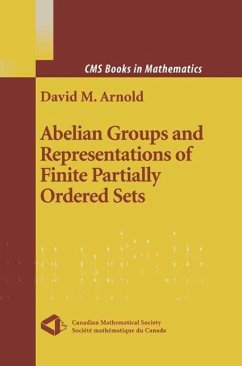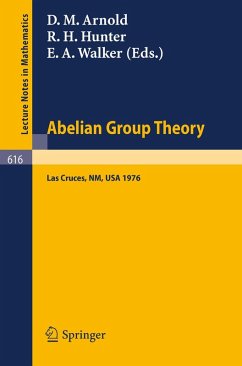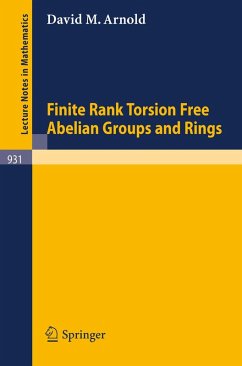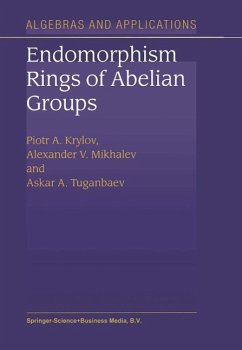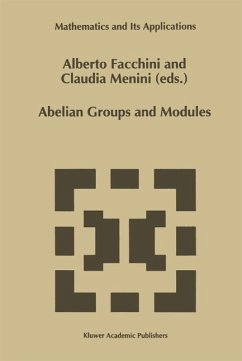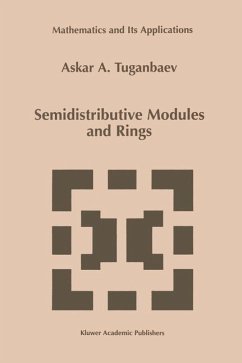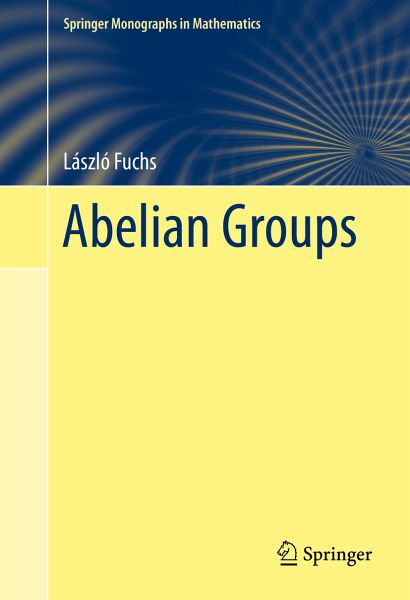
Abelian Groups (eBook, PDF)
Versandkostenfrei!
Sofort per Download lieferbar
128,95 €
inkl. MwSt.
Weitere Ausgaben:

PAYBACK Punkte
64 °P sammeln!
Written by one of the subject's foremost experts, this book focuses on the central developments and modern methods of the advanced theory of abelian groups, while remaining accessible, as an introduction and reference, to the non-specialist. It provides a coherent source for results scattered throughout the research literature with lots of new proofs.The presentation highlights major trends that have radically changed the modern character of the subject, in particular, the use of homological methods in the structure theory of various classes of abelian groups, and the use of advanced set-theor...
Written by one of the subject's foremost experts, this book focuses on the central developments and modern methods of the advanced theory of abelian groups, while remaining accessible, as an introduction and reference, to the non-specialist. It provides a coherent source for results scattered throughout the research literature with lots of new proofs.
The presentation highlights major trends that have radically changed the modern character of the subject, in particular, the use of homological methods in the structure theory of various classes of abelian groups, and the use of advanced set-theoretical methods in the study of un decidability problems. The treatment of the latter trend includes Shelah's seminal work on the un decidability in ZFC of Whitehead's Problem; while the treatment of the former trend includes an extensive (but non-exhaustive) study of p-groups, torsion-free groups, mixed groups and important classes of groups arising from ring theory. To prepare the reader to tackle these topics, the book reviews the fundamentals of abelian group theory and provides some background material from category theory, set theory, topology and homological algebra.
An abundance of exercises are included to test the reader's comprehension, and to explore noteworthy extensions and related sidelines of the main topics. A list of open problems and questions, in each chapter, invite the reader to take an active part in the subject's further development.
The presentation highlights major trends that have radically changed the modern character of the subject, in particular, the use of homological methods in the structure theory of various classes of abelian groups, and the use of advanced set-theoretical methods in the study of un decidability problems. The treatment of the latter trend includes Shelah's seminal work on the un decidability in ZFC of Whitehead's Problem; while the treatment of the former trend includes an extensive (but non-exhaustive) study of p-groups, torsion-free groups, mixed groups and important classes of groups arising from ring theory. To prepare the reader to tackle these topics, the book reviews the fundamentals of abelian group theory and provides some background material from category theory, set theory, topology and homological algebra.
An abundance of exercises are included to test the reader's comprehension, and to explore noteworthy extensions and related sidelines of the main topics. A list of open problems and questions, in each chapter, invite the reader to take an active part in the subject's further development.
Dieser Download kann aus rechtlichen Gründen nur mit Rechnungsadresse in A, B, BG, CY, CZ, D, DK, EW, E, FIN, F, GR, HR, H, IRL, I, LT, L, LR, M, NL, PL, P, R, S, SLO, SK ausgeliefert werden.



